Intro
Discover 5 essential pregnancy diet tips for a healthy pregnancy, including nutrition advice, meal planning, and prenatal care, to support fetal development and maternal well-being.
Pregnancy is a critical period in a woman's life, and a well-planned diet is essential to ensure the health and well-being of both the mother and the baby. A pregnancy diet rich in essential nutrients supports the baby's growth and development, while also helping the mother to stay healthy and strong throughout the pregnancy journey. With so many dietary options available, it can be overwhelming for expectant mothers to make informed choices about what to eat and what to avoid. In this article, we will delve into the world of pregnancy diets, exploring the key nutrients, foods, and tips that can help support a healthy pregnancy.
A healthy pregnancy diet is not just about consuming more calories, but also about making informed choices about the types of foods that provide essential nutrients. Expectant mothers need to focus on consuming a balanced diet that includes a variety of whole foods, such as fruits, vegetables, whole grains, lean proteins, and healthy fats. These foods provide the necessary building blocks for the baby's growth and development, while also supporting the mother's overall health and well-being. Furthermore, a well-planned pregnancy diet can help to reduce the risk of pregnancy complications, such as gestational diabetes, hypertension, and preeclampsia.
Eating a healthy diet during pregnancy is crucial, as it provides the necessary nutrients for the baby's growth and development. A pregnancy diet rich in essential nutrients, such as folic acid, iron, calcium, and protein, can help to support the baby's development, while also reducing the risk of birth defects and other complications. Additionally, a healthy pregnancy diet can help to support the mother's overall health and well-being, reducing the risk of pregnancy-related complications and promoting a healthy pregnancy outcome. With so many benefits, it's essential for expectant mothers to prioritize their diet and make informed choices about the foods they eat.
Pregnancy Nutrition Basics
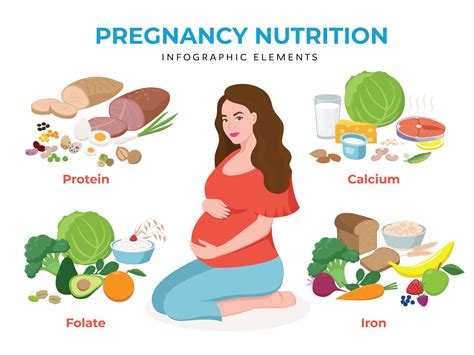
Key Nutrients for Pregnancy
The key nutrients that are essential for a healthy pregnancy include: * Folic acid: 400-800 micrograms per day * Iron: 27 milligrams per day * Calcium: 1,000 milligrams per day * Protein: 71 grams per day * Omega-3 fatty acids: 200-300 milligrams per day These nutrients can be obtained through a variety of whole foods, including fruits, vegetables, whole grains, lean proteins, and healthy fats. Expectant mothers should also consider taking a prenatal supplement to ensure they are getting all the necessary nutrients.Healthy Foods for Pregnancy
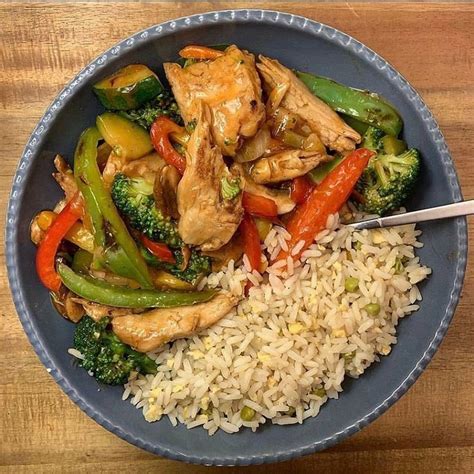
Foods to Avoid During Pregnancy
While a healthy diet is essential for a healthy pregnancy, there are also some foods that expectant mothers should avoid. These include: * High-mercury fish, such as shark and swordfish * Raw or undercooked meat, poultry, and eggs * Unpasteurized dairy products, such as raw milk and soft cheeses * Excessive caffeine and sugar * Processed and packaged foods, such as frozen meals and snack foods These foods can increase the risk of pregnancy complications, such as foodborne illness and birth defects.Pregnancy Diet Tips
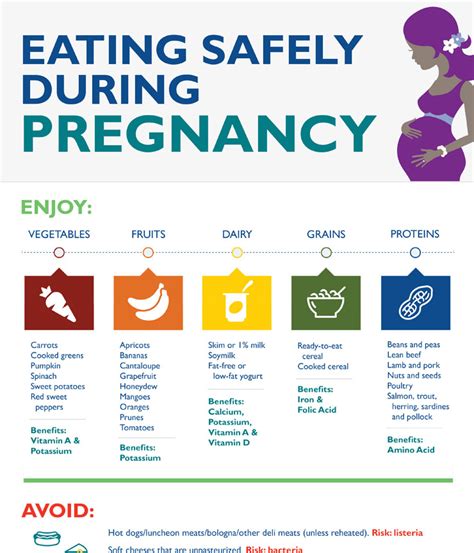
Managing Pregnancy Cravings
Pregnancy cravings can be a challenge for expectant mothers, but there are some strategies that can help manage them. These include: * Eating a balanced diet to reduce cravings for unhealthy foods * Staying hydrated to reduce cravings for sugary drinks * Engaging in physical activity to reduce stress and anxiety * Practicing mindful eating to reduce emotional eating * Seeking support from healthcare providers or registered dietitians to develop a personalized meal planPregnancy Meal Planning
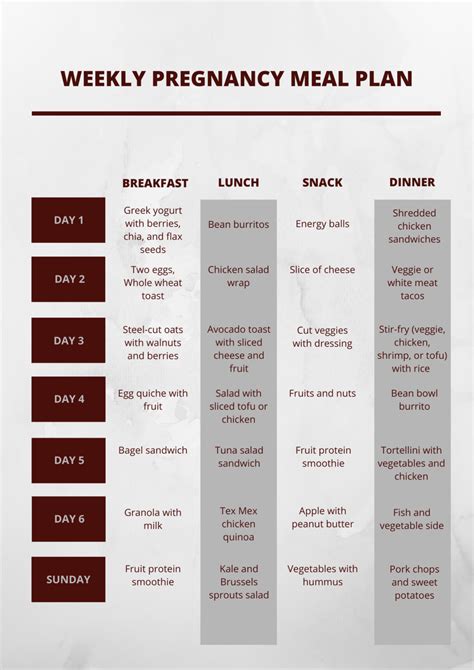
Pregnancy Snacks
Healthy snacking is essential for a healthy pregnancy. Some healthy snack options include: * Fresh fruits, such as apples and bananas * Raw vegetables, such as carrots and celery * Nuts and seeds, such as almonds and pumpkin seeds * Whole grain crackers, such as rice cakes and whole wheat crackers * Yogurt, such as Greek yogurt and kefir These snacks provide essential nutrients, such as fiber, protein, and healthy fats, that support the baby's growth and development.Pregnancy and Nutrition Myths
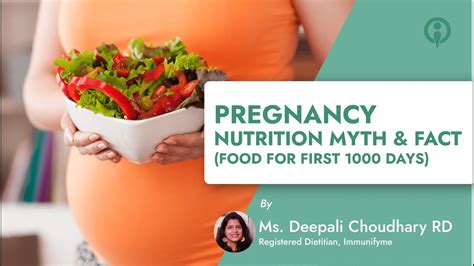
Debunking Pregnancy Nutrition Myths
It's essential to debunk these myths and misconceptions to ensure expectant mothers are getting accurate information about pregnancy and nutrition. Some ways to debunk these myths include: * Consulting with healthcare providers or registered dietitians * Reading credible sources, such as scientific studies and government websites * Joining pregnancy support groups to connect with other expectant mothers * Staying informed about the latest research and recommendations on pregnancy and nutritionPregnancy Nutrition and Lifestyle

Pregnancy and Mental Health
Pregnancy can be a challenging time for mental health, and expectant mothers should prioritize their mental well-being. Some ways to support mental health during pregnancy include: * Practicing self-care, such as taking baths and reading books * Connecting with loved ones, such as friends and family members * Seeking support from healthcare providers or mental health professionals * Engaging in physical activity, such as walking and prenatal yoga * Getting enough sleep, aiming for 7-9 hours per nightWhat are the most important nutrients for a healthy pregnancy?
+The most important nutrients for a healthy pregnancy include folic acid, iron, calcium, and protein. These nutrients support the baby's growth and development, while also reducing the risk of birth defects and other complications.
How can I manage pregnancy cravings and stay on track with my diet?
+Managing pregnancy cravings can be challenging, but there are some strategies that can help. These include eating a balanced diet, staying hydrated, engaging in physical activity, and practicing mindful eating. Expectant mothers can also seek support from healthcare providers or registered dietitians to develop a personalized meal plan.
What are some healthy snack options for pregnancy?
+Some healthy snack options for pregnancy include fresh fruits, raw vegetables, nuts and seeds, whole grain crackers, and yogurt. These snacks provide essential nutrients, such as fiber, protein, and healthy fats, that support the baby's growth and development.
In conclusion, a healthy pregnancy diet is essential for supporting the baby's growth and development, while also reducing the risk of pregnancy complications. By following these pregnancy diet tips and staying informed about the latest research and recommendations, expectant mothers can prioritize their health and well-being, and support a healthy pregnancy outcome. We invite you to share your thoughts and experiences with pregnancy diets in the comments below, and to share this article with others who may be interested in learning more about healthy pregnancy nutrition.
